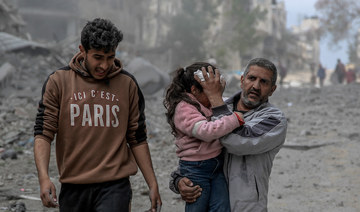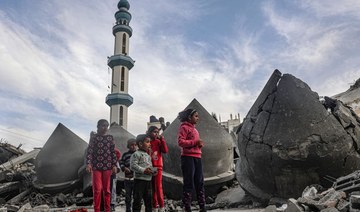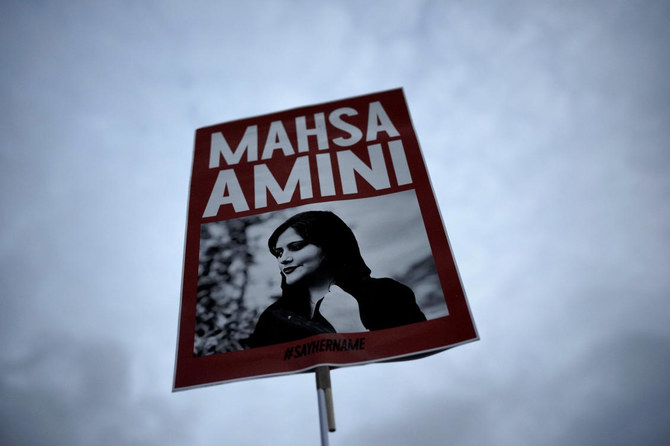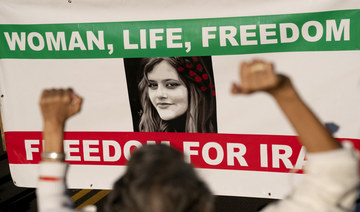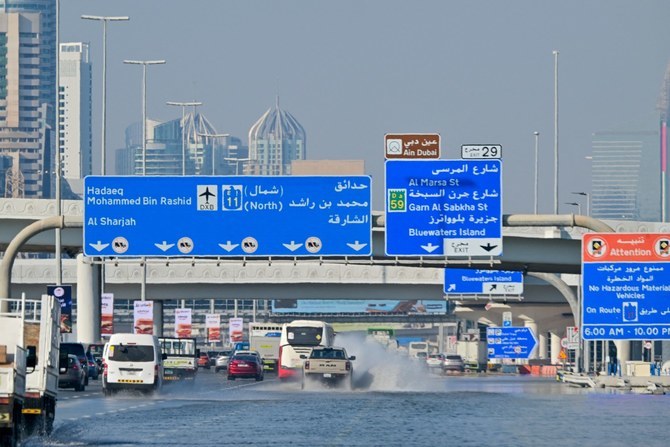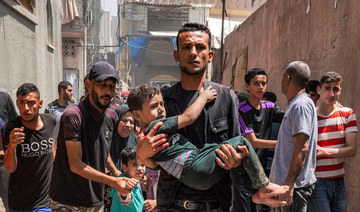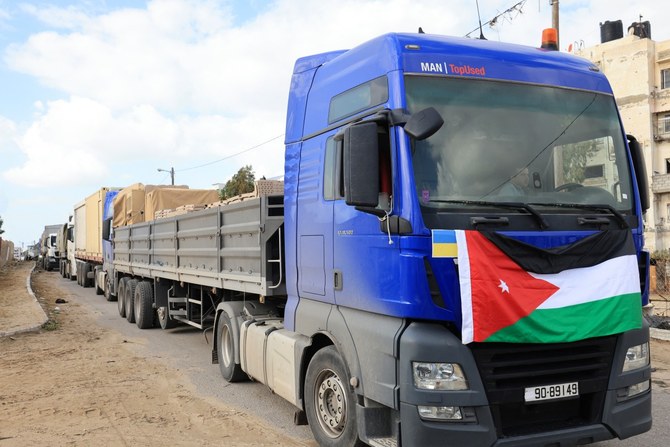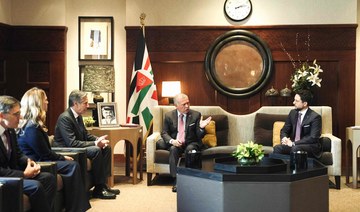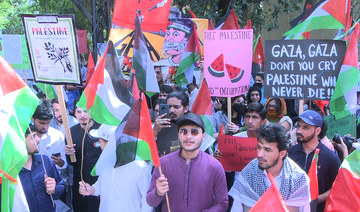PARIS: Since the start of the war in Gaza, Ali Jadallah has lost 15 members of his family, including his father, his two brothers, his sister and his aunt. It is a tragedy that still resonates in his mind, especially as his sister’s body has never been found.

Palestinian journalist Ali Jadallah, clad in a protective vest, stands against the backdrop of a landscape scarred by Israel’s war on Gaza. (Supplied)
“From the very first days of the war, I lost my home, which was totally destroyed by Israeli bombing. My wife and children survived by a miracle,” the photographer told Arab News en Français.
The rest of his family was less fortunate.
“On Oct. 11, I was taking a photo of a house that had been bombed. It was near the street where my parents lived with my two brothers and my sister. I heard an explosion and realized that the family home had been hit. I ran toward it and saw that it was in ruins,” Jadallah said.
“I got closer and started digging with my bare hands, screaming as I tried to find my family, who had been completely buried under the rubble. And then I saw a hand appear between the stones. It was my mother’s. She was the only survivor.”

Flames and smoke rise into the night sky as Israel’s airstrikes target buildings in Gaza. (Ali Jadallah)
Jadallah has been using his camera for decades to document the difficult daily lives of the people of Gaza. His photos have won awards in the Arab world and internationally, including in the prestigious Sharjah Photo Contest.
The journalist was born and grew up in Gaza. From his first internship at Reuters when he was just a teenager, he knew would make a career of it. A few years later, he worked as a freelancer for a number of local and international news agencies before joining the Turkish Anadolu Agency.

Amid the chaos of a hospital's emergency room, a woman cradles a young boy wounded during Israel’s latest war in Gaza. (Ali Jadallah)
“I’ve covered several wars, but I never imagined such violence,” he said in reference to the war in Gaza.
Like the local journalists who have been working non-stop since Oct. 7, Jadallah continues to visually document the appalling violence that has spared no one in Gaza.
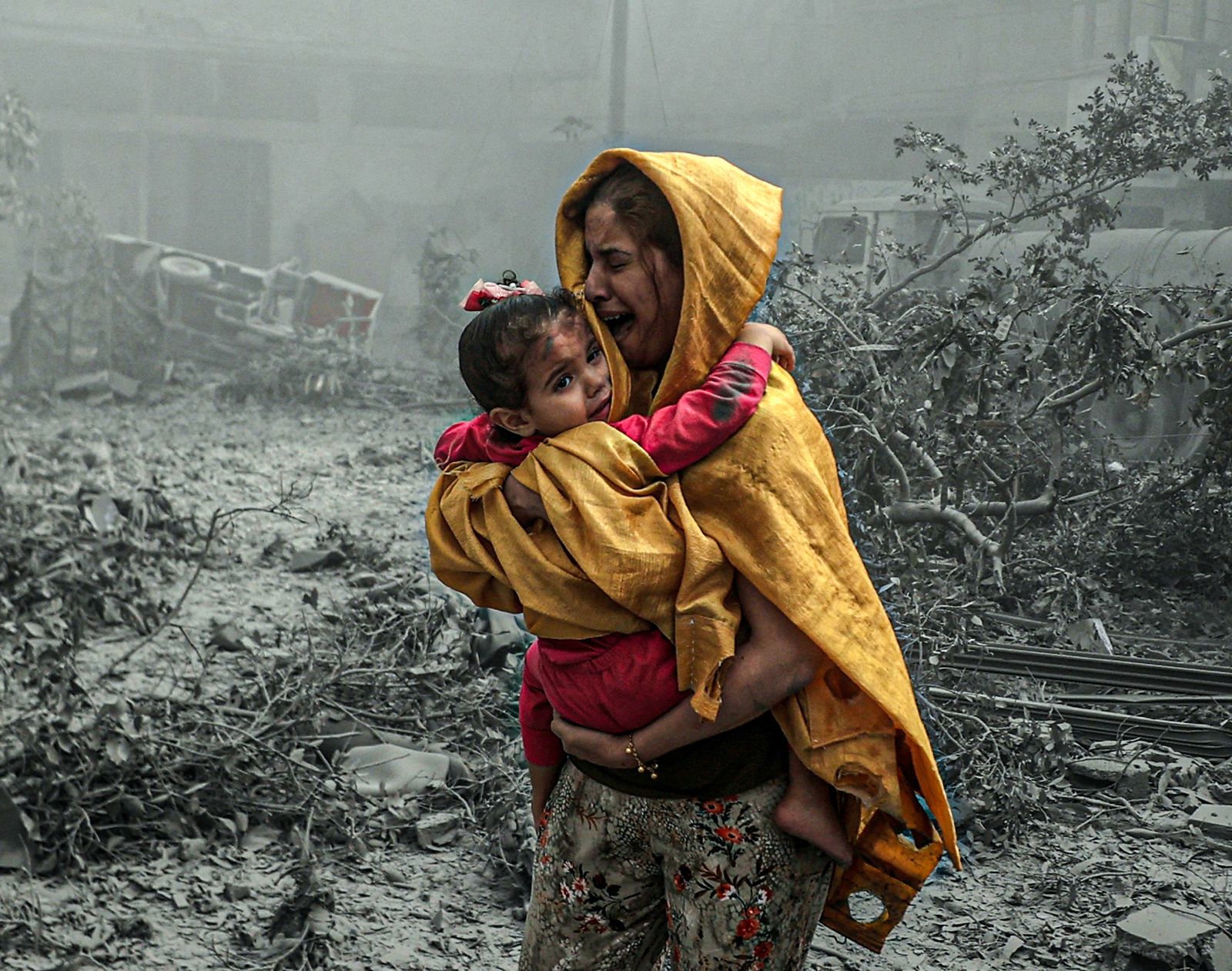
A women and child stand amidst the devastation left in the wake of an Israeli offensive in Gaza. (Ali Jadallah)
“We have to show the whole world the horror we are going through, particularly in the absence of foreign journalists, who are banned by Israel from entering the Gaza Strip,” he said.
Today, the journalist is part of a team of six photographers who live and work together at a hospital in the southern Gaza Strip, the north being inaccessible.
“Whether we are correspondents for local or foreign media, our daily lives as journalists are those of the 2.4 million Gazans subjected to the Israeli army’s bombardments and blockade, suffering from a lack of everything: clothing, food, fuel, etc.,” he said.

Paramedics rush a wounded civilian to the emergency room in Gaza. (Ali Jadallah)
Faced with the personal tragedy he has experienced, the journalist thinks of his mother, wife and two young children — “All I have left after losing everything,” he said.
Thanks to the support of the Turkish agency he works for, he was able to evacuate them to Turkiye.

A man lies trapped under the rubble of a building destroyed by an Israeli airstrike as rescuers scramble to free him following an airstrike in Gaza. (Ali Jadallah)
“I haven’t seen them for over three months and I certainly miss them, but at least I know they’re in a safe place,” he said.
“The most important thing now is to report what’s happening,” he reiterated.

An elderly man, surrounded by family members, is injured amid Israel’s war on Gaza. (Ali Jadallah)
Despite arduous circumstances, he has managed to post his painful odyssey on his Instagram account, which is followed by around 2 million people. Two of his photos were selected by Time magazine as among the 100 photos with the greatest impact on the world in 2023.
One photo — for which Jaddallah won special recognition from the jury in the international Picture of the Year competition — shows a woman, wrapped in a simple curtain, fleeing her bombed-out home with her baby in her arms.
“I would have liked to have received this recognition for a photo illustrating the beauty of the world rather than the distress and horror experienced by my own people,” said Jadallah.

A mother comforts her injured child at a local medical facility in Gaza. (Ali Jadallah)




